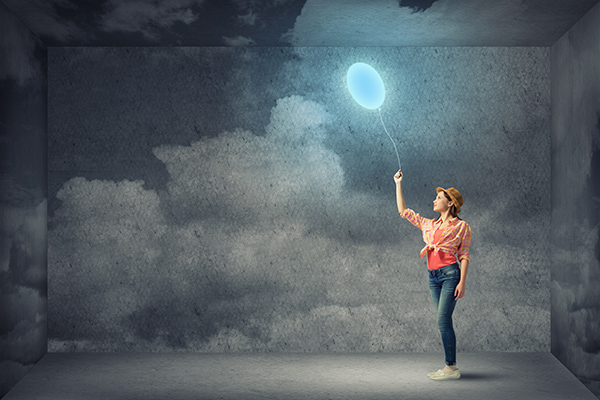Creativity is a phenomenon where something valuable and new is formed. This can be a physical object or an idea. Creativity uses one’s imagination to produce an object or idea. Creative people are original; they think outside the box. The same can often be said about people with substance use disorders, who use their creativity to further their addiction, but then turn it around into positive actions in recovery. 
Is There a Correlation Between Addiction and Creativity?
There are a lot of creative people that have addiction problems, and addicts do get pretty creative amid their addiction, but is there a correlation? There is no clear-cut link between addiction and creativity. There may be a link between creativity and mood disorders, however, and we do know that there is a link between addiction and mental health disorders. Some research suggests that creativity and addiction may be driven by lower dopamine. Addicts and creative people a lot of times experience reduced pleasure because of their lower levels of dopamine, and thus have to work harder to feel good. This makes them motivated to get involved in higher-risk activities.
Examples of Creativity in Mental Health Disorders
Dialogues in Clinical Neuroscience published by the National Institute of Health talks about creativity and mood disorders.
Anecdotally, there are many examples of striking associations between creativity and mood disorders, and particularly bipolar disorder. For example, Vincent Van Gogh suffered from a mood disorder during much of his short, adult, life, before committing suicide at age 37. During the last year and a half of his life, he suffered from severe bouts of both psychotic mania and psychotic depression, yet he also produced more than 300 of his greatest works. Sylvia Plath, who also died by suicide at the young age of 31, suffered from severe mood disorder for much of her life. Although she was probably depressed at the time of her death, this period was preceded by a time when she worked late into the night and got up early in the morning, writing poetry intensely – and often poetry with a wry, dry sense of humor, suggesting intermittent periods of a manic or hypomanic state. Martin Luther suffered periods of intense despair, but also periods of extremely high energy. After his Ninety-five Theses unexpectedly launched the Reformation, he devoted enormous energy to writing theological tracts to defend his position. Many other well-known creative people suffered from mood disorders, many of them bipolar: Ernest Hemingway, Winston Churchill, and Theodore Roosevelt, to mention only a few. (NIH)
We know that addiction involves genetics and stress factors. Also, addicts tend to have certain characteristics of being creative.
- Risk-taking
- Attention seeking
- Valuing nonconformity
- Needing regular excitement and stimulation
- Tendencies to act impulsively
There have been many addicts that have talked about being creative amid their addiction. A lot will tell you that coming up with ideas to get money, and the actual chase to get their substance of choice is far more rewarding than actually doing the drug. It seems like the addict’s dopamine levels increase significantly when they are trying to come up with creative ways to get ‘high’. Once they’ve gotten their drug of choice, their dopamine levels drop until they start using; this seems to be a vicious cycle. Furthermore, we do know that there is a link between addiction and things that are a prerequisite for creativity. Personality traits, mental illnesses, and trauma from the past can all be factors that can contribute to a person’s vulnerability when it comes to addiction.
Treatment for Drug and Alcohol Addiction
If you or someone you love is struggling with an addiction, our recovery specialists are available around the clock to assist you. Evoke Wellness offers safe medical detoxification in a comfortable environment and with minimal discomfort. We provide residential treatment in a structured environment and then provide you with after-care support to help lead you on a road to long-lasting recovery. You don’t have to suffer any longer, call our 24/7 addiction treatment helpline.


